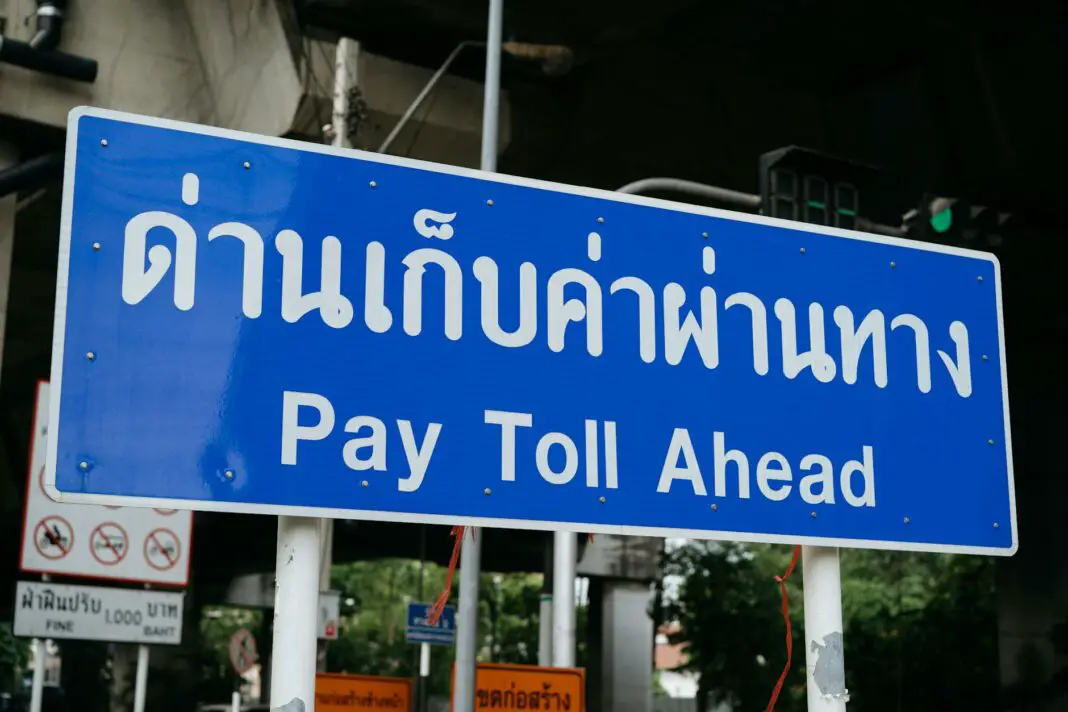Embarking on a journey to Thailand is like stepping into a living tapestry filled with vibrant cultures, breathtaking landscapes, and delicious cuisine. As travelers traverse bustling cities, serene beaches, and historic temples, the thrill of experiencing a new culture becomes even more enriching when locals feel that you speak their language. Learning to communicate in Thai during your trip empowers you to connect with the community, enhancing your overall experience. From ordering street food to engaging in heartfelt conversations, speaking Thai like a local can transform your adventure into something unforgettable.
This blog post serves as your ultimate guide to not only exploring the wonders of Thailand but also mastering essential Thai phrases to navigate your visit seamlessly. With practical tips, a handy table of contents, and insights to help you speak Thai with confidence, you’re set for an immersive experience. Dive in to discover key phrases and savvy tips that will allow you to truly connect with the heart and soul of Thailand.
Table of Contents
- Why Visit Thailand?
- Understanding the Thai Language
- Basic Thai Phrases for Travelers
- Cultural Tips for Speaking Thai
- Practical Examples to Enhance Conversations
- Embracing the Local Culture Through Language
- Embracing Thai Cuisine with Language
- Unlocking the Heart of Thailand
- Frequently Asked Questions
Why Visit Thailand?
Thailand, often referred to as the Land of Smiles, captivates visitors with its stunning landscapes, rich history, and the warm hospitality of its people. From the bustling streets of Bangkok to the tranquil shores of the Andaman Sea, every corner of this enchanting nation offers a unique experience. Irresistible street food stalls serve mouthwatering dishes, while splendid temples invite exploration and reflection. The vibrant culture, which includes festivals, traditional dances, and community gatherings, showcases the strong sense of identity that Thais take great pride in. Additionally, with an array of natural wonders from lush jungles to serene islands, outdoor enthusiasts find endless opportunities for adventure. Traveling through Thailand awakens the senses and creates unforgettable memories, making it a must-visit destination for anyone yearning for rich experiences.
The allure of Thailand is not merely its visual splendor; it lies in the people, their stories, and how they express their culture through language. Engaging with locals adds depth to your experience and opens doors to new friendships and authentic interactions. Mastering a few key Thai phrases can go a long way, bridging the gap between cultures and fostering connections that go beyond the traveler’s usual experience. So, consider taking a leap and immerse yourself in the language, culture, and stunning backdrop that Thailand offers.
Understanding the Thai Language
The Thai language, known as phasa thai, is a tonal language that presents a unique set of challenges and intricacies for newcomers. Featuring five distinct tones that can change the meaning of a word completely, mastering the basics of Thai pronunciation is crucial for effective communication. The language has a rich script that may appear daunting at first glance, but the good news is that many Thais, especially in tourist areas, understand and speak English. However, making the effort to learn a few phrases can enhance your interactions significantly and showcase your appreciation for their culture. The nuances of politeness in the Thai language are essential as well; for instance, using the appropriate formalities in greetings or farewells can help you endear yourself to locals.
Understanding the context in which certain phrases are used offers deeper insights into Thai society. For instance, greetings often showcase the cultural emphasis on respect and formality. Thais enjoy using the word “khrap” for males and “kha” for females at the end of sentences to express politeness. This small addition can truly enhance your communication efforts. As you delve into the Thai language, remember that patience and practice are your best companions in this journey.
Basic Thai Phrases for Travelers
To navigate your trip to Thailand effectively, grasping some fundamental phrases can pave the way for smoother interactions. Start with the basics, such as “Sawasdee krup/kha” to greet someone politely. When asking for directions, try saying “Thao rai?” to inquire about the cost of items. Other valuable phrases include “Chai” for yes and “Mai” for no, which will undoubtedly assist in everyday conversations. Learning to say simple questions in Thai can prompt the same courtesy from locals when they respond. Moreover, familiarizing yourself with phrases related to dining, shopping, and transportation is tremendously beneficial. For instance, “Aroi mak” means very delicious, an essential phrase when enjoying the exquisite Thai cuisine. Remember, the more phrases you master, the more relaxed and engaged you’ll feel!
Continuing your language journey, you might want to learn how to ask for help or clarification. “Choo yai noi” translates to help please, and “Pom/Chan mai kao yai” signifies I don’t understand. Practicing the right intonations while conveying these phrases will make them resonate well with the locals. Having these fundamental phrases under your belt will not only elevate your travel experience but will also leave a lasting impression on the people you meet along the way.
Cultural Tips for Speaking Thai
Understanding and respecting Thai culture is pivotal to genuinely connect with local residents. When communicating, remember that a smile goes a long way in Thailand. It reflects the friendly nature of Thai society and eases any tension when attempting to converse in a foreign language. Additionally, being aware of non-verbal cues can significantly enhance your interaction. For example, using the traditional “wai” greeting, where you press your palms together and bow slightly, demonstrates respect and appreciation. Incorporating these cultural components into your conversations will lead to a more immersive experience.
Moreover, patience is essential when practicing Thai with locals. Many Thais appreciate your efforts to speak their language, even if you pronounce something incorrectly. Encouraging gestures like nodding or smiling will reciprocate kindness during your interactions. Efforts will be rewarded, as locals often open their hearts to those who make an effort. By learning how to speak Thai like a local, you not only gain a tool for communication but also forge connections that give you a glimpse into the authentic Thai way of life.
Practical Examples to Enhance Conversations
Equipping yourself with useful phrases enables enriching conversations with locals during your travels. Picture yourself at a bustling night market; by confidently saying “Hambhonn chuai?” (Can you help me?), you attract the attention of nearby vendors eager to assist you. Whether you’re curious about the offered dishes or in need of some assistance with haggling, show interest, and you’ll be surprised at how the locals engage back. Learning to say “Khaw khaa” (Excuse me) can also improve interactions. You’re not only getting someone’s attention, but also signaling respect. This initiates a friendlier atmosphere and encourages locals to reciprocate your engagement.
In addition, while exploring local preparations of food at a roadside stall, don’t hesitate to compliment the chefs. Phrases like “Pob khun nit nai” (I really appreciate it) go a long way in making your dining experience delightful. You might also express your preferences, such as “Mai pet” for not spicy, which shows both politeness and consideration for local customs. Showcasing this awareness during your interactions illuminates your respect for both the cuisine and the culture. Ultimately, the more you practice speaking Thai and integrating it into everyday experiences, the more natural it will feel.
Embracing the Local Culture Through Language
Language serves as a gateway to immersing oneself in the vibrant tapestry of Thai culture. When you attempt to communicate in Thai, you’re not just showcasing your willingness to learn; you’re also connecting to a culture steeped in history and traditions. Exploring local markets and saying “Sawasdee krup/kha” to vendors opens the door to uncovering family stories and the dedication that goes into their craft. They often appreciate conversing with someone who is genuinely interested in their way of life beyond the ordinary tourist experience.
Additionally, participating in festivals or cultural events allows you to practice your language skills in an authentic setting. Getting to know the nuances of traditional greetings or ceremonial phrases fosters a deeper understanding of the cultural significance behind them. Engaging with locals during these celebrations enhances your appreciation for the customs and traditions that permeate Thai life. This journey transcends mere travel; it becomes a voyage of understanding, driven by language as your companion in navigating the beauty and richness of Thailand.
Embracing Thai Cuisine with Language
Thai cuisine is undoubtedly one of the most compelling reasons to visit Thailand. The dynamic flavors, bold spices, and the harmony of taste make food a gateway to the culture. Speaking Thai while dining should not be overlooked! When ordering food, phrases like “Thik mai” (is it spicy?) and “Pob yeuy” (slowly) become invaluable tools for tailoring your experience. Locals greatly appreciate patrons who take the time to learn not only the dishes but also how to communicate their preferences.
Sampling street food from vendors brings a unique opportunity to engage with remarkable culinary artisans. Phrases like “Khaw pad Thai” indicate your desire for a specific dish and spark delightful conversations about cooking methods. Highlighting popular dishes, such as “Tom Yum Goong,” not only makes you a connoisseur of local cuisine but also opens further dialogue about ingredient sourcing and preparation. This interaction goes beyond a meal; it transforms dining into shared stories and experiences, where every bite recounts a slice of Thai culture.
Unlocking the Heart of Thailand
Your journey to Thailand will undoubtedly leave an indelible mark, filled with unforgettable moments and lasting memories. By learning to communicate in Thai, you’re not merely visiting a foreign land; you’re actively participating in its rich culture and vibrancy. Each phrase you grasp pulls back the curtain on the heart of this beautiful country, enabling interactions that would otherwise remain hidden behind language barriers. As you navigate through Bangkok’s bustling streets, relax on the pristine beaches of Phuket, or pay homage at ancient temples, remember that speaking Thai is more than a tool for communication; it’s a bridge that connects you to the essence of Thailand. Embrace this journey, learn the language, and allow the magic of Thailand to work its charm through every conversation.
Frequently Asked Questions
What are some recommended resources for learning Thai before my trip?
There’s a variety of user-friendly resources for learning basic Thai phrases! Language apps like Duolingo and Drops focus on conversational Thai. Additionally, YouTube channels dedicated to language learning provide valuable pronunciation and context examples. Consistent practice is key, so immerse yourself in the language as much as possible.
Can I get by speaking English in Thailand?
While many Thai people, especially in tourist-heavy areas, do speak English, learning a few essential Thai phrases can greatly improve your experience. Not everyone may be fluent in English, and attempting to communicate in Thai can foster goodwill among locals, resulting in more meaningful interactions.
How important is tone in the Thai language?
Tone is extremely vital in Thai as it can completely change the meaning of a word. With five distinct tones, it’s essential to pay attention to how words are pronounced. However, don’t be discouraged; locals often appreciate your efforts and will help clarify any misunderstandings!
Is it rude to speak English if I can’t speak Thai?
It’s not rude to speak English, especially if you’re polite and use basic Thai greetings. However, showing an effort to learn a few phrases garners respect and creates warmer interactions. Always approach conversations with a smile, and you’ll find that locals are very accommodating.
What are the best phrases to remember for dining in Thailand?
Key dining phrases include “Khaw pad Thai” for requesting Pad Thai, “Aroi mak” to express how delicious the food is, and “Thik mai” to inquire about spice levels. These phrases can elevate your dining experience and show respect for delicious Thai cuisine.
Image Credit: Pexels





